Editor's note: This story first appeared in the November 2023 issue of Chess Life Magazine. Consider becoming a US Chess member for more content like this — access to digital editions of both Chess Life and Chess Life Kids is a member benefit, and you can receive print editions of both magazines for a small add-on fee.
When I was seven years old, my mom signed me up for an after-school chess program. I heard “chest” and envisioned a giant treasure chest where we would all get candy and goodies. To my disappointment, all that was waiting when I showed up was an unfamiliar board game. After the teacher explained the rules, I remember capturing my opponent’s king and claiming, “I won!” The teacher explained this was not checkmate, and that’s when I realized the true challenge of this game. From there I continued to learn the basics of chess, taking part in summer camps and group lessons in these early years.
At the same time I began playing chess, I was also struggling with self-hatred and gender dysphoria — a feeling that permeated my body with sorrow and unease —something that I could not yet conceptualize and articulate to my parents. Gender dysphoria, for me, was an omnipresent feeling that I would be more fulfilled living as another gender. By age five, I already sensed I would be happier had I been born a girl, but I did not know people could change their gender to match how they felt internally. I didn’t think I could achieve that desired self.
My earliest memories of manifesting this desire began in kindergarten, when they began treating boys and girls differently. I wondered why I could not be one of the girls. Wearing the boys’ school uniforms and being called by my birth name, “Samuel,” made me extremely uncomfortable. Every time it happened or I thought about it, the discomfort was so intense that I wanted to abort my skin. I did not know what I was experiencing was gender dysphoria, but I was certain something was wrong with me, and it made me despise myself.
Because I thought I had no choice but to remain miserable, I did not take anything seriously. In chess classes, I was disruptive and sought attention to mask my low self-esteem. was such a troublemaker that my chess coaches became really annoyed with me. One time, I goofed so much in a group lesson that I was kicked out. So, while my friends continued to improve, nobody was surprised when I, and my provisional rating of 118 — based on 11 losses and one Scholar’s Mate win — decided to quit chess at the advanced age of nine.
Over a decade later, I rediscovered chess as part of the same introspective journey that led to my medical transition. In high school, my suppressed dysphoric feelings resurfaced, and I fell into a deep anhedonic state, where I lost interest in social contact and no longer experience pleasure. This newfound self-isolation — and the accompanying overwhelming senses of fear, confusion, and anxiety — led to my socially constructed identity beginning to crack. I finally recognized the girl I could become. But what I did not yet realize was that this woman would excel at chess.
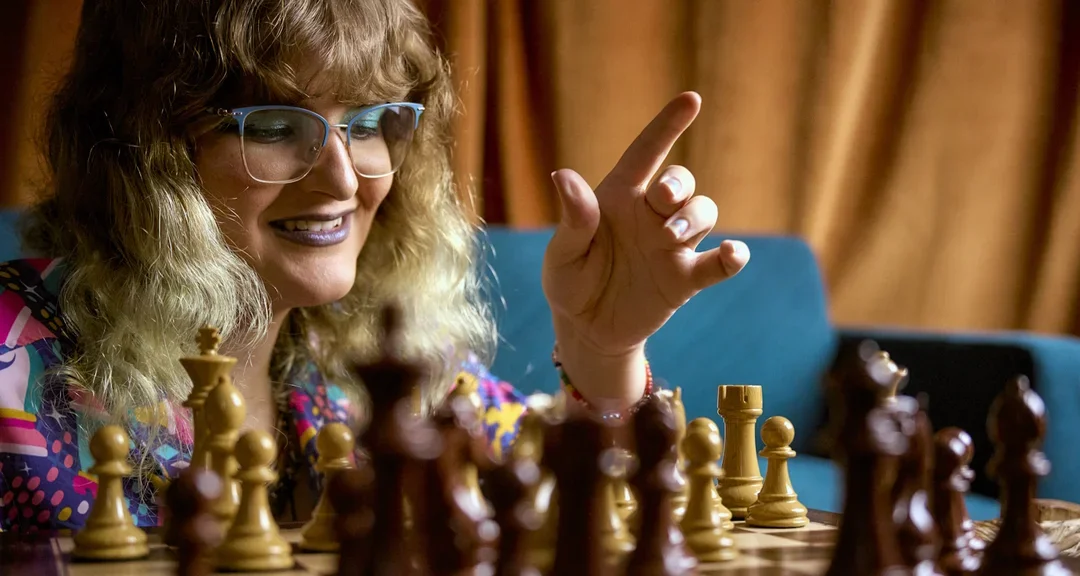
I started my medical transition in my senior year of high school. Not much later, after my first semester in college, the pandemic shut down the country. As quarantine ended and the world re-opened, I began seeking political and social spaces where my newfound identity would be accepted. I was welcomed at the St. Petersburg Chess Club, where I made my first moves back towards serious chess. A local Kava lounge became a regular hangout for me to befriend people who accepted and validated me for who I was. As it happened, they also hosted a biweekly chess tournament.
Playing chess in an environment where I felt comfortable being myself sounded exciting, so I decided to sign up for the next tournament. I started practicing online and discovered my base skill rating was around 800. After hanging my queen to a 1600, a friend recommended I watch IM Levy Rozman’s videos on YouTube, and from there I was hooked.
Another friend informed me about upcoming local tournaments, as well as the World Open in Philadelphia. The thought of playing in official tournaments had never crossed my mind, but it sounded fun, and I was up for the challenge. My friends also connected me with coaches — including one from Venezuela, whom I met with virtually on LiChess, and JJ Lang, who for me is the best coach ever.
In July 2021, I attended the Southern Open in Orlando with my trans friends from Tampa, Riley and Jasper. “Once rated, always rated” at 118, I entered the U1200 section, and I lost my first-round game. After a bye, I won three games in a row to finish with 4/5, and I won the Mixed Doubles prize with my childhood friend Aidan!
I used my prize money to travel to Cherry Hill, NJ for the 2021 U.S. Open. where I stayed with my trans chess friend Mady, whom I had met at the World Open earlier that summer. My live rating was up to 800, but I was still 118 on the July list. In round one I pulled off a major upset over a 1700-rated player. Because of this, I was the lowest-rated player with a full point, so I faced the highest-rated player who had requested a half-point bye: 2017 U.S. Women’s Champion WGM Sabina Foisor. After we followed Catalan theory for 15 moves, I watched her walk to the pairing sheet to double-check that her opponent was really rated only 118! She ground me down in a 60-move minor piece endgame, but my tenacity impressed her, and I have taken lessons with her since.
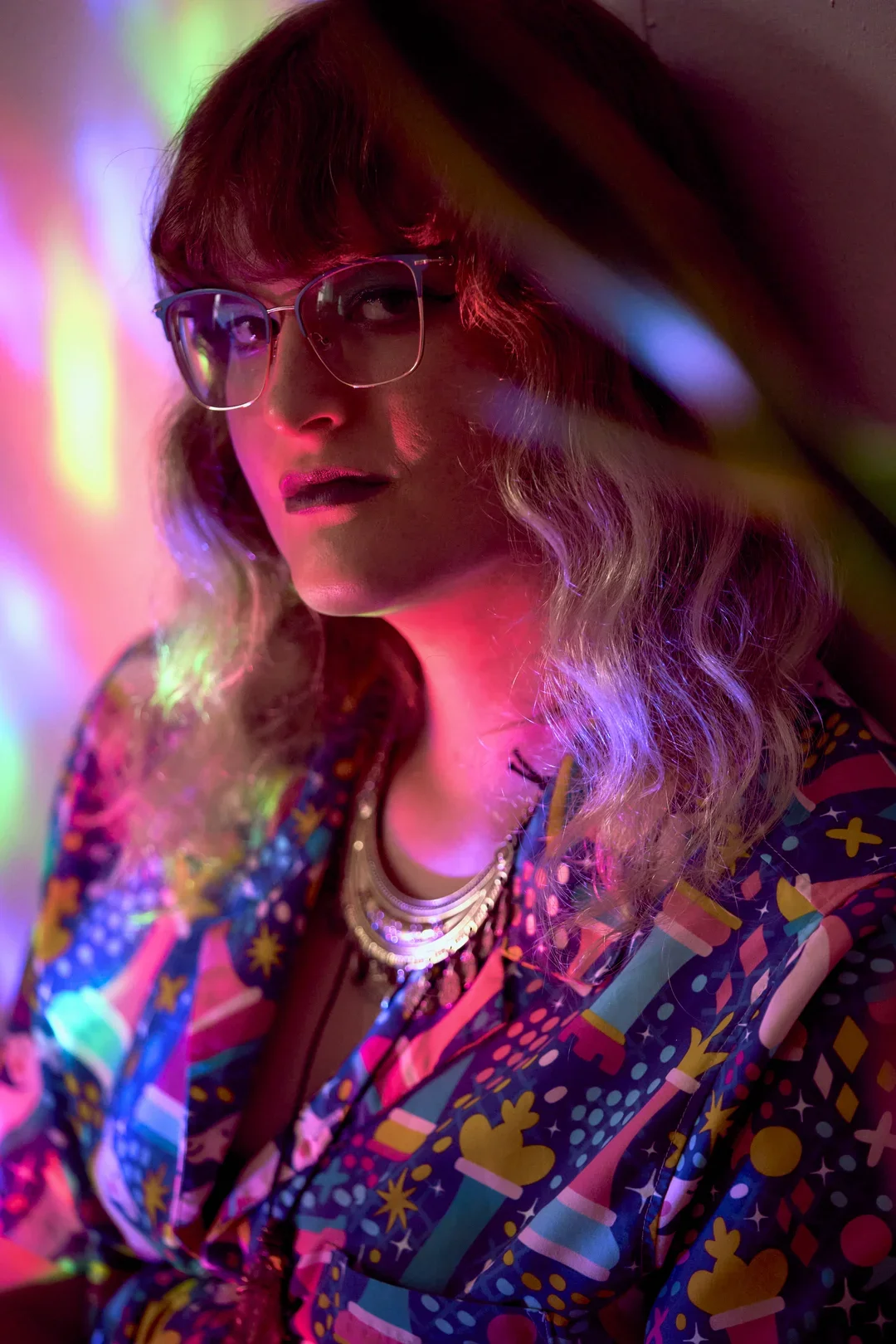
After the U.S. Open, Mady and I formed the Trans Chess Club (TCC), an online chess server for trans, queer, neurodivergent people, and allies. TCC is a safe space for players of all levels, where we get to be ourselves, learn, and bond over the game we love. I have been fortunate in that I have not faced discrimination while playing in tournaments, but I know people who have. Supportive spaces for marginalized people like the TCC are essential for our continued enjoyment of the game. We have hosted tournaments featuring trans chess icon FM Yosha Iglesias, as well as other LGBT+ masters, where we get to face them and try our best, learning from the experience. You can find us on Twitter at @transchessclub.
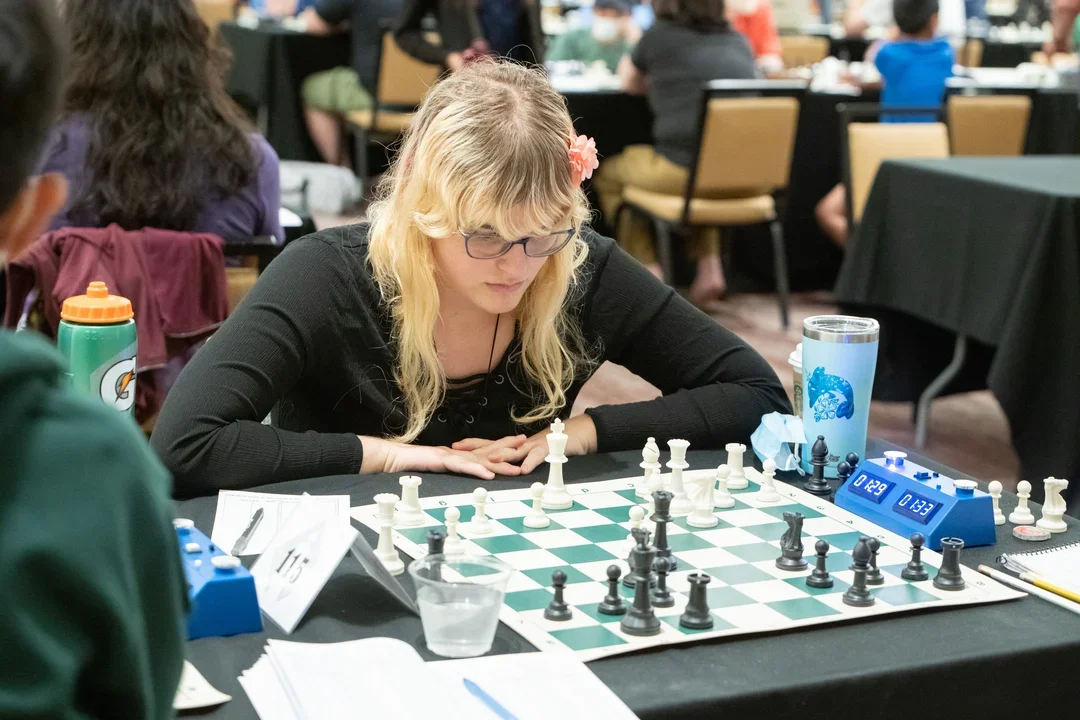
In January 2022, I played in the 7th Annual Gulf Coast New Year’s Open with TCC friend Riley. I won first place in the U1450 section and took home $800! I was ecstatic to finally win a tournament after a few tragic final round shortcomings, and I proudly posted my triumph to the r/chess subreddit. That post holds the title of sixth all-time most upvoted post, beating out posts about IM Levy Rozman’s marriage and GM Hikaru Nakamura’s birthday.
I have been blessed to make an assortment of amazing friends in my chess travels. I often meet someone at a tournament, and then plan to travel with them to a future one. In the summer of 2022, I traveled to Las Vegas for the National and U.S. Women’s Opens. It was an amazing experience. Women’s tournaments are such special and supportive environments. Everyone is friendly, and we share our love and passion for chess while also crafting a space that is free from the misogyny often found in chess spaces. My performance at the Women’s open was disappointing overall, but the highlight was a near-draw versus WFM, played live on a DGT board where my friends could watch!
To conclude the summer of 2022, four of us from the Trans Chess Club (TCC) traveled to the U.S. Open in Palm Springs, California. We fundraised on Twitter and GoFundMe to help with our expenses. Chess Twitter pulled through with their generosity, donating $1,200! (Thanks to everyone who donated!)
We ordered vegan dinners from the same cafe every night, went for walks in the mountainous desert scenery, toured the large resort, and analyzed our games together, laughing and enjoying ourselves the whole way — though it was difficult after tragic losses! The highlight was my victory in a tough endgame against a talented and young near-master.
I am an example of the transformational growth that can occur if you allow a young person to become their dream selves
After two years of getting into chess, my US Chess rating has grown from 800 to a high of 1615. This growth in chess was achieved, in large part, by fulfilling the self-efficacious needs of my womanhood. Transitioning wasn’t just about reducing my depression when I was 17; it was about transposing into an ideal self, one who would make me happy with my existence and would allow me to thrive in the persona I dreamt of.
I am grateful to have had the privilege to shape my body and self-expression into what my heart and mind desire. My growth into a beautiful young woman is a fulfilled childhood dream. This path toward self-actualization and love for myself is allowing me to develop into my fullest potential as a human. I am a more capable, well-rounded, and passionately drive person now.
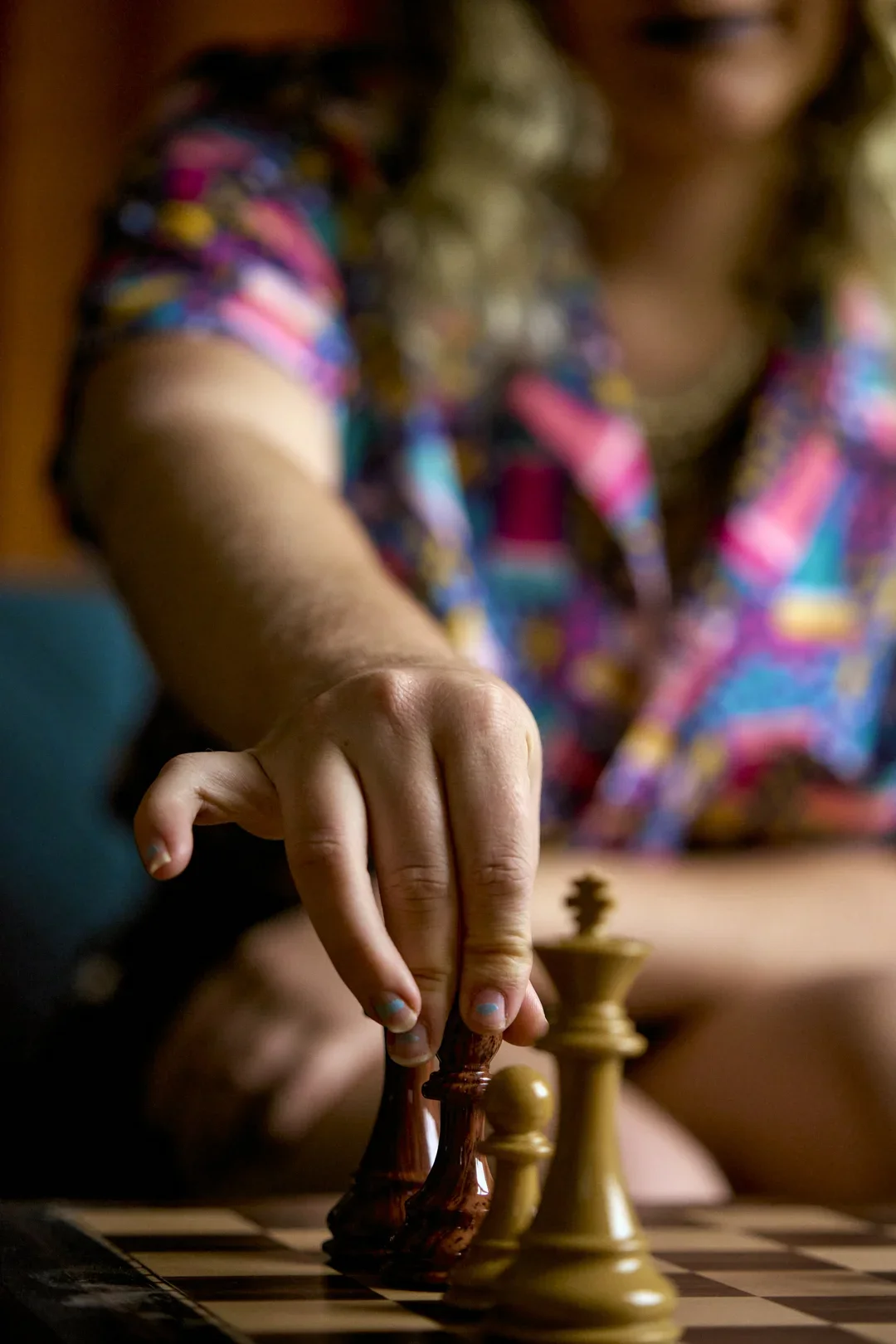
My long-term goals are to eventually continue my studies in New York and to follow a career path that allows me to change society for the better. I also wish to pursue my growth in chess, as I believe I have lots of potential ahead of me. Unfortunately, much of my energy over the past year has been tied up in defending LGBT rights and academic freedom in Florida. Authoritarian attacks on our freedom to exist in society as our true selves, and on our freedoms to learn the subjects we choose, have increased. This has led to me working to build and grow a platform in activism and media.
Some people mischaracterize the fight for trans and queer inclusion as a movement to radicalize or even “groom” others. This could not be further from the truth: we just want to have the time, energy, and space to pour ourselves into our hobbies and passions without fear of persecution, and the freedom to be ourselves in these spaces. It also mischaracterizes our unwavering support for LGBT youth as harmful. LGBT youth have always and will continue to exist. It is imperative that we support LGBT youth and affirm their identities. I am an example of the transformational growth that can occur if you allow a young person to become their dream selves.
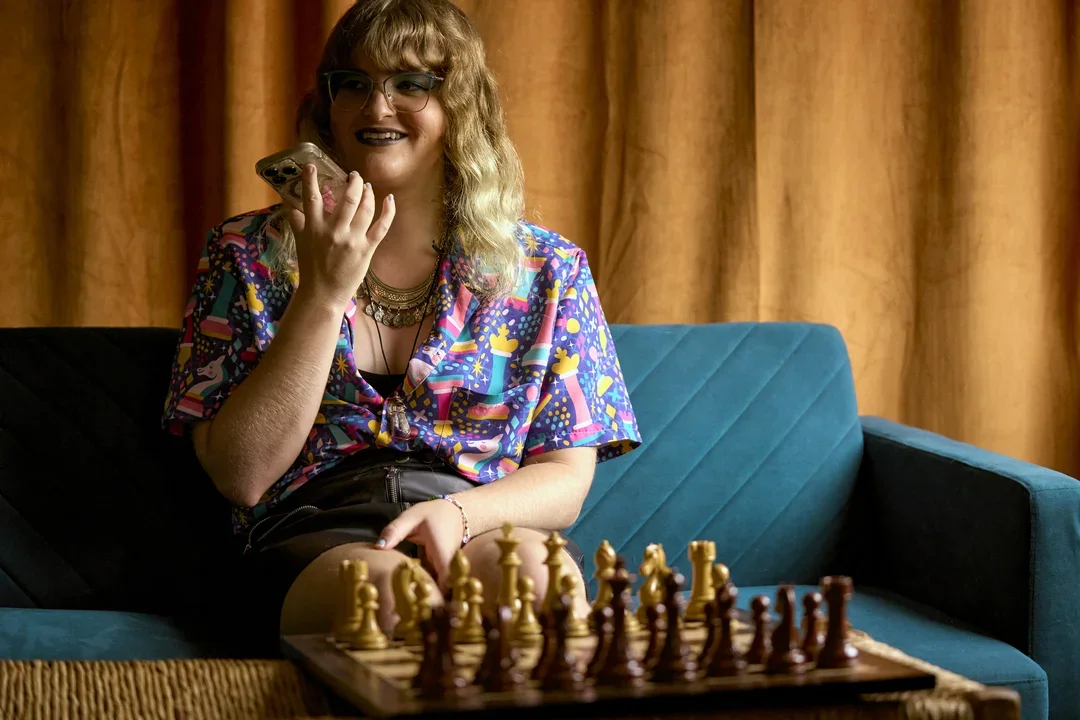
I feel fortunate that, as a trans woman, I have been welcomed into, and thrived in, different kinds of chess spaces. My favorite event so far was the 2022 U.S. Women’s Open in Las Vegas. As women, we typically have trouble enjoying the masculine dominant social atmosphere of contemporary chess events, which is why many of us quit. But Women’s events provide us a safe, holistic, and supportive environment with healthy competition. We are able to make friends and enjoy the presence of a talented and determined group of other women and girls. Trans women and girls deserve to be included in these spaces, as we experience the same social archetypes.
But most importantly — we deserve to be in these spaces because we, too, love this game. Chess is for everyone, and trans men, women, boys, and girls are no different from anyone else in this regard. Our pieces move the same way yours do... if perhaps with a bit more flair. We rejoice over our victories, mourn our losses, and lament those lost half-points, just like everyone else.
Representation matters. If you are reading this, and something resonates with you, know that there are allies in the chess world, and that you belong here, with us.
As for me... well, I’ll see you at the board.
Categories
Archives
- January 2026 (4)
- December 2025 (27)
- November 2025 (29)
- October 2025 (39)
- September 2025 (27)
- August 2025 (29)
- July 2025 (43)
- June 2025 (25)
- May 2025 (24)
- April 2025 (29)
- March 2025 (29)
- February 2025 (20)
- January 2025 (24)
- December 2024 (34)
- November 2024 (18)
- October 2024 (35)
- September 2024 (23)
- August 2024 (27)
- July 2024 (44)
- June 2024 (27)
- May 2024 (31)
- April 2024 (51)
- March 2024 (34)
- February 2024 (25)
- January 2024 (26)
- December 2023 (29)
- November 2023 (26)
- October 2023 (37)
- September 2023 (27)
- August 2023 (37)
- July 2023 (47)
- June 2023 (33)
- May 2023 (37)
- April 2023 (45)
- March 2023 (37)
- February 2023 (28)
- January 2023 (31)
- December 2022 (23)
- November 2022 (32)
- October 2022 (31)
- September 2022 (19)
- August 2022 (39)
- July 2022 (32)
- June 2022 (35)
- May 2022 (21)
- April 2022 (31)
- March 2022 (33)
- February 2022 (21)
- January 2022 (27)
- December 2021 (36)
- November 2021 (34)
- October 2021 (25)
- September 2021 (25)
- August 2021 (41)
- July 2021 (36)
- June 2021 (29)
- May 2021 (29)
- April 2021 (31)
- March 2021 (33)
- February 2021 (28)
- January 2021 (29)
- December 2020 (38)
- November 2020 (40)
- October 2020 (41)
- September 2020 (35)
- August 2020 (38)
- July 2020 (36)
- June 2020 (46)
- May 2020 (42)
- April 2020 (37)
- March 2020 (60)
- February 2020 (38)
- January 2020 (45)
- December 2019 (34)
- November 2019 (35)
- October 2019 (42)
- September 2019 (45)
- August 2019 (56)
- July 2019 (44)
- June 2019 (35)
- May 2019 (40)
- April 2019 (48)
- March 2019 (61)
- February 2019 (39)
- January 2019 (30)
- December 2018 (29)
- November 2018 (51)
- October 2018 (45)
- September 2018 (29)
- August 2018 (49)
- July 2018 (35)
- June 2018 (31)
- May 2018 (39)
- April 2018 (31)
- March 2018 (26)
- February 2018 (33)
- January 2018 (30)
- December 2017 (26)
- November 2017 (24)
- October 2017 (30)
- September 2017 (30)
- August 2017 (31)
- July 2017 (28)
- June 2017 (32)
- May 2017 (26)
- April 2017 (37)
- March 2017 (28)
- February 2017 (30)
- January 2017 (27)
- December 2016 (29)
- November 2016 (24)
- October 2016 (32)
- September 2016 (31)
- August 2016 (27)
- July 2016 (24)
- June 2016 (26)
- May 2016 (19)
- April 2016 (30)
- March 2016 (36)
- February 2016 (28)
- January 2016 (32)
- December 2015 (26)
- November 2015 (23)
- October 2015 (16)
- September 2015 (28)
- August 2015 (28)
- July 2015 (6)
- June 2015 (1)
- May 2015 (2)
- April 2015 (1)
- February 2015 (3)
- January 2015 (1)
- December 2014 (1)
- July 2010 (1)
- October 1991 (1)
- August 1989 (1)
- January 1988 (1)
- December 1983 (1)







